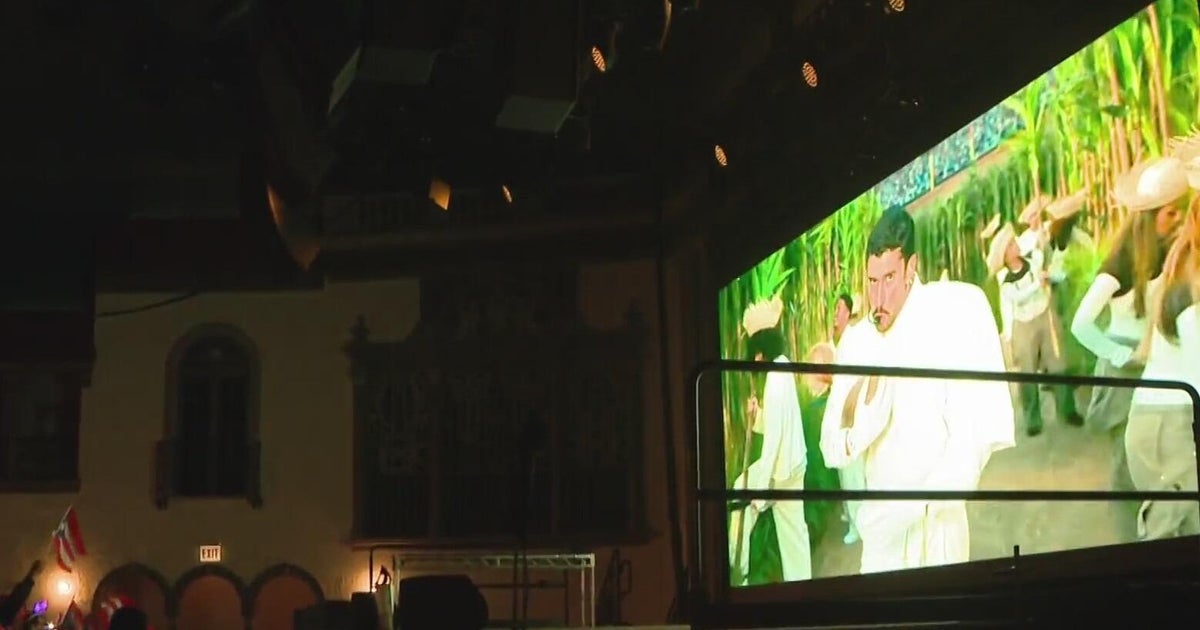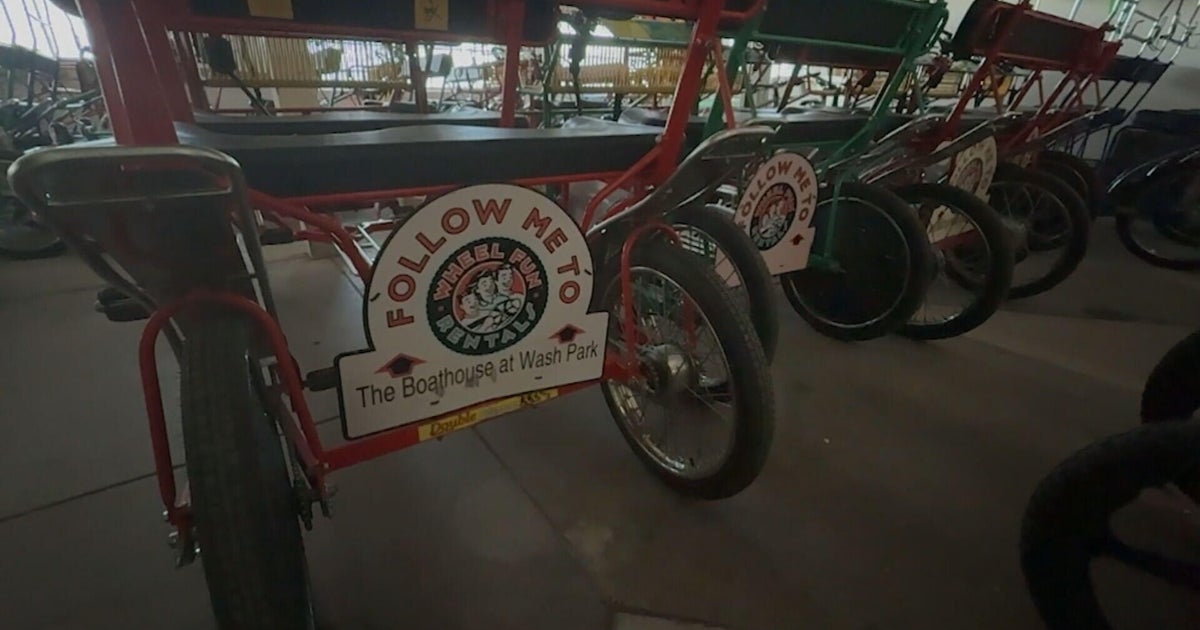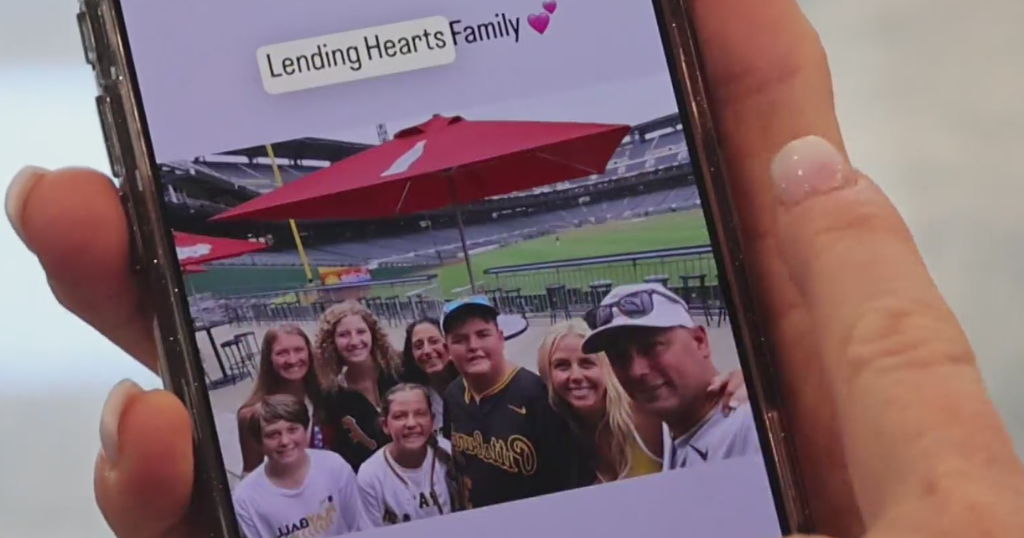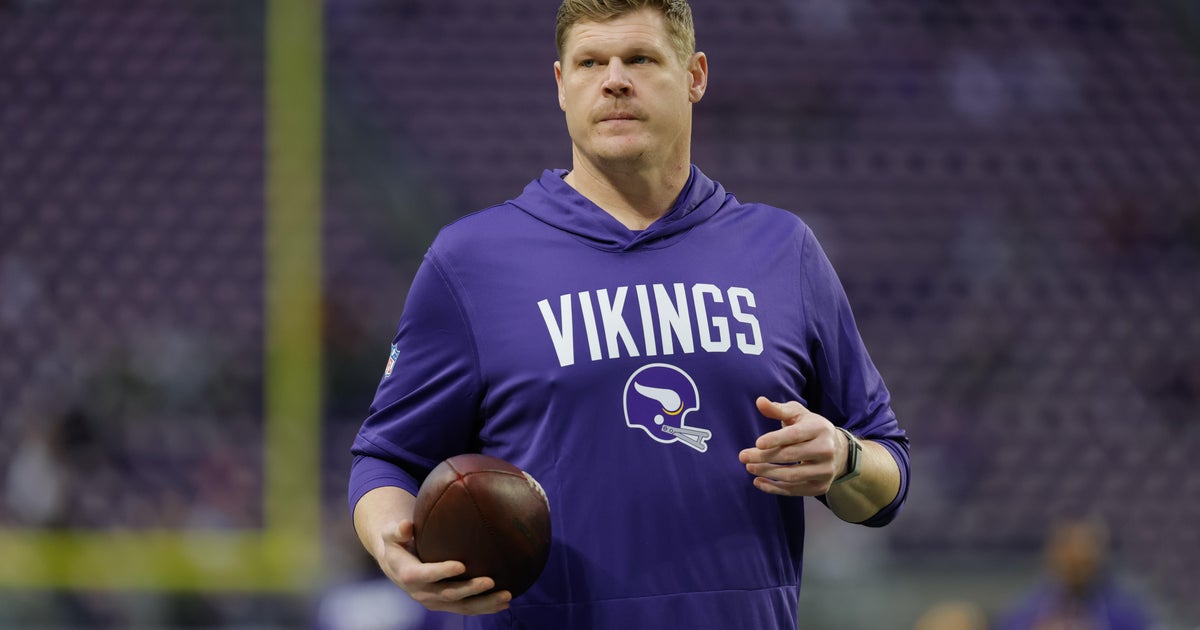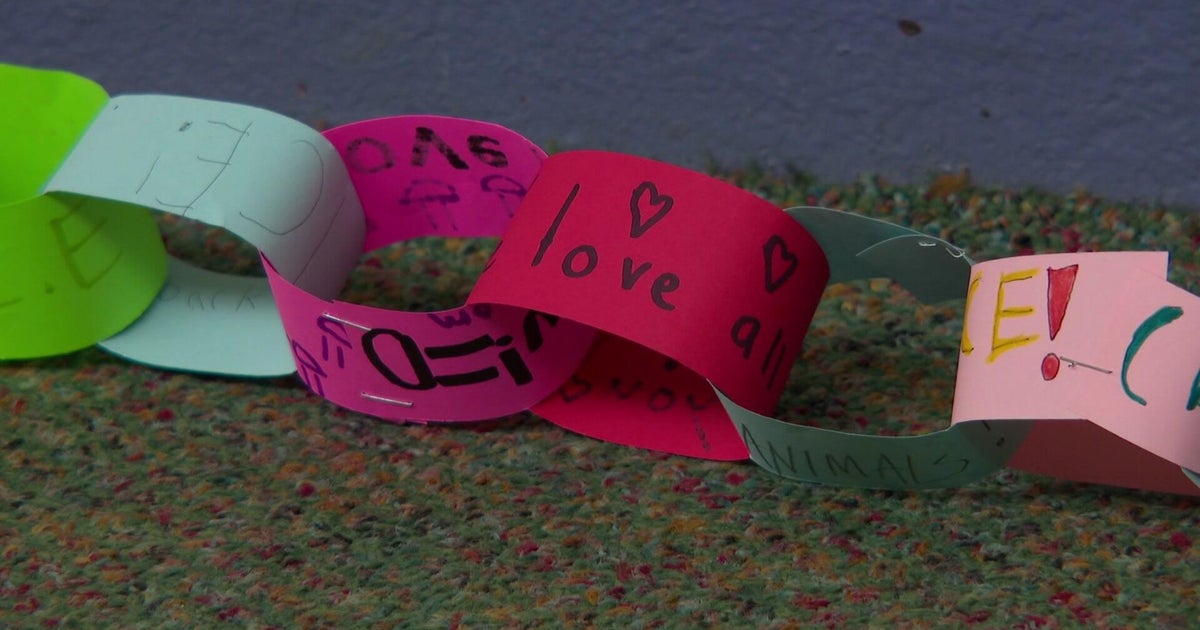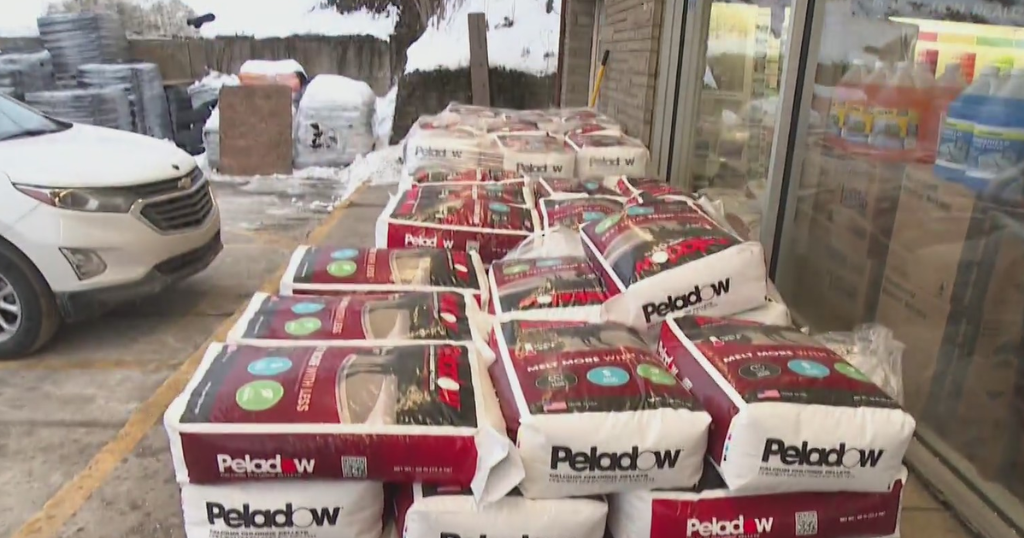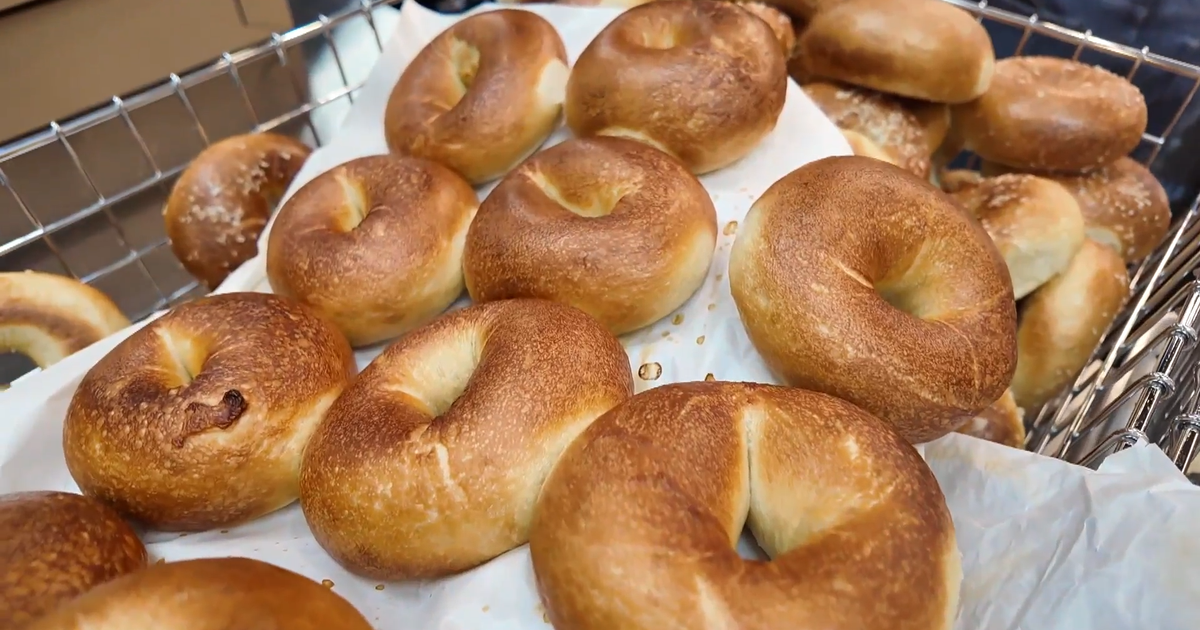WWE Superstar Sonya Deville: 'Had To Find A Way To Be Comfortable With Who I Was'
(CBSNY/CBS Local) -- Growing up in New Jersey, Sonya Deville spent the majority of her life dating men. It was the norm, and it wasn't really anything she ever questioned, although there were likely times when her love life was like trying to fit a square peg through a round hole. Maybe it wasn't so much as denial as it was missing the obvious. The future WWE Superstar almost had to get hit over the head with her own sexuality to figure everything out. Her epiphany finally came courtesy of a friend's mother who flat out told her she was gay. Even then she didn't initially believe it. The conversation in her own mind went something like, "No, I'm not gay. Am I? No way. But maybe. Am I? Oh my God, I am."
Deville's coming-out party was seen by millions, as she inadvertently publicly outted herself on national television. She was among the contestants on the WWE Tough Enough reality series, where would-be wrestlers competed to earn a lucrative contract and a coveted spot on the roster. When she was asked by Paul "Triple H" Levesque whether she was in relationship, she blurted out that she had a girlfriend. Anxiety quickly washed over her, as she had not publicly announced her sexuality, nor had her girlfriend disclosed to her parents that she was gay. Nonetheless, she owned her truth, and everything turned out just fine.
Today, Deville is using her celebrity status as a WWE Superstar to encourage others to own their truth as well. She has become a prominent figure in the LGBT community and an advocate for others still struggling with their identity.
Not long ago a young fan from Kansas City waited hours on end outside of the arena to share her story with the wrestler, whom she idolized. She arrived at six o'clock in the morning for a live broadcast of SmackDown that wouldn't begin until seven o'clock that night. She was determined to make the connection.
When Deville arrived at the arena at one o'clock that afternoon, she made it a point to have the long awaited meeting. Emotions overcame the young girl, who began sobbing as she presented the wrestler who had inspired her with a heartfelt letter and sign. Through the tidal wave of emotions, she told Deville that she had inspired her to come out and live her life authentically.
Those are the conversations the Deville loves.
I had the opportunity to catch up with the 26-year-old WWE Superstar and LGBT advocate who spoke about her revelation that she was gay and journey to self-acceptance, finding love, having her love life play out on reality TV, same-sex story lines in WWE, pushing back against homophobia, and inspiring others to follow in her footsteps.
>>READ: Latest from the world of Pro Wrestling
How old were you when you started to realize that, "Hey, boys aren't my thing. I'm more attracted to women."
It's kind of a long journey for me. It took a while to feel comfortable with my sexuality. I dated guys up until I was probably 18 or 19. And then I actually was producing an independent film and in South Jersey. The basis of the film was an LGBTQ script where two women fall in love, and I ended up playing the lead. And the girl that I cast opposite me ended up being my girlfriend, and art kind of imitated life. We ended up kind of playing out the story and moving to LA together. That was my first real relationship with a female.
Here I am, that was six years ago, and obviously it's not been easy. But I think I would say coming out on Tough Enough four years ago, saying it out loud and saying it on such a public platform was probably what made me have to be comfortable with it. It was almost like I put it into the universe and I made it real for the first time ever by saying it out loud. And so then I kind of had to find a way to be comfortable with who I was.
What was the environment like for you growing up as far as the attitude toward the LGBT community? Pretty open and accepting or was that something you really weren't even introduced to?
I grew up in a really small town in South Jersey, and I really didn't know many gay people. So I think that may have made it a little challenging. But that being said, my family was always accepting. They weren't judgmental when it came to that kind of stuff. My mom was always so open and loving. So I never feared that I would be disowned or abandoned or anything like that, which I was grateful for. In my high school, I don't think there was any openly gay people at the time. So for me to come out, it would have taken a lot of courage. And I just... I was in denial for a long time.
I moved out of my house when I was 17 to pursue martial arts. I moved to South Florida to train with the best fight team, American Top Team. So I was living on my own, and that's when I got to really explore and kind of do my own thing. One day one of my best friends' mom was down in South Florida, and she was like, "Daria, I think you're gay." And that was the first time I ever heard anybody kind of say those words to me. And I was like, "Whoa, I think she's right."
But I still even denied it to her at the time. So it was a long process of kind of figuring myself out and just... I was the one that had to be comfortable with me in order to be open about it.
You do so much now to embrace this side of you. Do you want your sexuality to define you, or is this really just another part of Sonya's puzzle?
No, no. It's definitely one piece of Sonya's puzzle. I don't want it to define me, and I don't want it to take away from my career and what I'm capable inside of the ring. At the end of the day, I'm an athlete. I'm a performer, I'm a former mixed martial artist. There's so many layers to Sonya, but certainly her sexuality has become a part of her layers, because I firmly believe in love and acceptance for all, but that's not only in the LGBTQ community. That's gender, that's race, that's anti-bullying. And those are all things that I'm super passionate about. So it's not just love and acceptance because I'm gay. That just happens to be one facet of what I stand for, because it is close and personal to me. But I also, I represent equality for all and in every other way.
With the Sonya character you're supposed to be the heel. You're dressed in all black, except for the LGBT flag in you back pocket. How do you balance the heel persona of Sonya versus the Sonya who's using this platform to further LGBT causes?
Sonya, at the end of the day is a fighter, right? She likes to kick ass. She likes to get in there and take names and she sometimes does take unorthodox measures to get there. So if that's what you consider a bad guy, then yeah, Sonya's bad. But she also is someone who represents equality, and that's something that's very close to my heart and something that, whether I'm a good guy or a bad guy, I'm always going to represent, because the really cool thing about WWE is there's always a larger message.
I work a lot with Girl Up and GLAAD, and I had the opportunity to be in the New York City pride parade this year, WorldPride, on the GLAAD float. There's so much more to our job than just what you see inside of the ring.
Have you ever been concerned about any blowback that you might face from fans who might be a little bit more conservative that are sitting in the stands, or has it really, you've just been welcomed with open arms wherever you go?
No matter where you are in the world, you're going to have people that accept you for who you are and you're going to have people that don't. And my goal is to show my fans and my supporters that I'm not afraid of the critics and the haters. I'm not going to hide who I am because I make people uncomfortable because of who I love. So I think that strength and that kind of courage to be who I am, regardless of what everybody says, is the message that I'm exactly trying to send to my fans.
Speaking of Total Divas, how has that experience been for you? When the season first started, we heard about the trials and the tribulations that you had with your girlfriend. You split up, and now you're kind of reconciling. How has the test been putting your relationship on such a spotlight on national TV like that?
Yeah, it's crazy. Nobody kind of warns you for what's to come when ... It's crazy enough being in the spotlight and sharing your life with the fans on WWE, SmackDown, and Raw, but doing it on Total Divas and getting on that more interpersonal level is super crazy. Then with me and my girlfriend, Ariana, we were only, I don't know, four or five months into dating when Total Divas came about. So we were still pretty new in our relationship. So originally Ariana didn't want to do the show. She's not about the glitz and the glam, and she didn't date me because I was WWE superstar. It was actually one of the downfalls of her dating me. She didn't like all the attention and the publicity. So she decided not to do Total Divas.
Then a couple of weeks later, we kept talking and she decided that to miss out on our relationship and how much we cared for each other just because of a show would be silly. So she agreed to do it with me, and it ended up being a really fun experience that we got to share together. Now we have memories of the beginning of our relationship kind of documented for eternity. So it was definitely a bumpy road, and it's been a really kind of fun thing to experience together.
You do so much with the Be a STAR program and GLAAD and Girl Up. What has your experience been like interacting with younger girls who themselves are wrestling with their sexuality? What's it like for you to try to empower them and have them embrace their truth and help them along the way?
It's so cool to have something relatable with your fans and when they come up and talk to me. I have so many young female fans from the LGBTQ community. That is probably the most predominant of my fan base. They come up to me all the time in the airport and even on Instagram, social media or outside the venue. And they're like, "Oh my God, I came out because you came out on Tough Enough." And that's my favorite thing to do is just to be able to relate to them and be like, "I was in your shoes. I understand the struggles of not wanting to come out or being scared to come out and it feeling wrong and weird." I can relate and get them so much. So it's so fun for me and it's so rewarding for me to be able to sit there and look them in the eye and be like, "But you have to be yourself."
You know, everybody else is already taken, you have to be who you were born to be and to deny yourself that right would be a shame. And so I love spreading that message, and I love doing the Be A STAR rallies. It's probably one of my favorite things to do with WWE because I hate bullying. I'm sure a lot of us do. I have a younger sister, and she was picked on growing up. And I was always so defensive over her and protective because she's my little sister of course.
Is it more important for you to be known as this champion of LGBT causes, or is it more important for you to be known as a championship performer?
I think I want to be known as a championship performer. It stands for a good cause and that's love and acceptance overall. So I think I could do it all. I've always had that mindset since I was young. I don't think any one thing can define me. I think, like we said, there's layers to Sonya Deville, and those are two of her layers.
Chuck Carroll is former pro wrestling announcer and referee turned sports media personality. He once appeared on Monday Night RAW when he presented Robert Griffin III with a WWE title belt in the Redskins locker room.
Follow him on Twitter @ChuckCarrollWLC.
